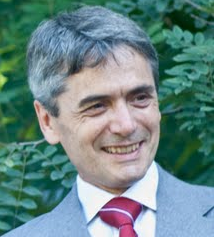 András Lörincz short bio: professor, senior researcher has been teaching at the Faculty of Informatics at Eötvös University, Budapest since 1998. His research focuses on distributed intelligent systems and their applications in neurobiological and cognitive modeling, as well as medicine. He has founded the Neural Information Processing Group of Eötvös University and he directs a multidisciplinary team of mathematicians, programmers, computer scientists and physicists. He has acted as the PI of several successful international projects in collaboration with Panasonic, Honda Future Technology Research and the Information Directorate of the US Air Force in the fields of hardware-software co-synthesis, image processing and human-computer collaboration. He authored about 200 peer reviewed scientific publications. He has received the Széchenyi Professor Award, Master Professor Award and the Széchenyi István Award in 2000, 2001, and 2004, respectively. In 20
András Lörincz short bio: professor, senior researcher has been teaching at the Faculty of Informatics at Eötvös University, Budapest since 1998. His research focuses on distributed intelligent systems and their applications in neurobiological and cognitive modeling, as well as medicine. He has founded the Neural Information Processing Group of Eötvös University and he directs a multidisciplinary team of mathematicians, programmers, computer scientists and physicists. He has acted as the PI of several successful international projects in collaboration with Panasonic, Honda Future Technology Research and the Information Directorate of the US Air Force in the fields of hardware-software co-synthesis, image processing and human-computer collaboration. He authored about 200 peer reviewed scientific publications. He has received the Széchenyi Professor Award, Master Professor Award and the Széchenyi István Award in 2000, 2001, and 2004, respectively. In 20
04, he was awarded the Kalmár Prize of the John von Neumann Computer Society of Hungary. He has become an elected Fellow of the European Coordinating Committee for Artificial Intelligence for his pioneering work in the field of artificial intelligence in 2006.
Abstract: In recent years, a number of novel applications have emerged through „L1 Magic“, the intriguing property that cost functions using l0 norm (i.e., the minimization of the number of the elements of a basis set representing a given input) and cost functions using l1 norm are equivalent under certain conditions. This feature turns relevant NP-hard-looking problems to polynomial ones. Based on this and related recent advances in signal processing, we study a novel model in which signal is decomposed into a dense signal of low intrinsic dimension and into a sparse signal. In contrast to other approaches, this preprocessing in conjunction with efficient sparse coding can achieve structural sparseness thus allowing for the formation of highly overcomplete and highly sparse, but combinatorial dictionaries. We shall present some results for natural images and will discuss the advantages of the separation of the two types of representations for other data, including movies and texts.

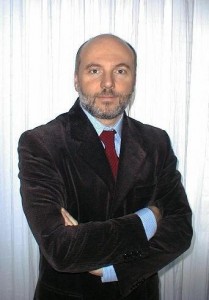
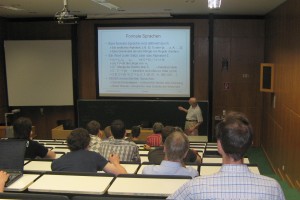 In der Vortragsreihe des Projektes Informatik verstehen hat am 8. Juni Herr Prof. Böszörmenyi vom Institut für Informationstechnologie über das Thema „Die unsichtbaren Diener – Der Compiler und seine Artgenossen“ referiert. Neben Mitarbeitern der Universität nahmen erfreulicherweise auch Lehrer und zahlreiche Schüler am Vortrag teil.
In der Vortragsreihe des Projektes Informatik verstehen hat am 8. Juni Herr Prof. Böszörmenyi vom Institut für Informationstechnologie über das Thema „Die unsichtbaren Diener – Der Compiler und seine Artgenossen“ referiert. Neben Mitarbeitern der Universität nahmen erfreulicherweise auch Lehrer und zahlreiche Schüler am Vortrag teil.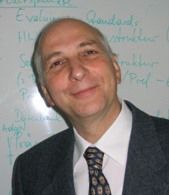 Hinter jeder Interaktion mit einem Computer liegt zumindest eine „formale Sprache“, egal, ob es sich dabei um klassische Programmierung oder zum Beispiel um eine Interaktion über eine graphische Schnittstelle handelt.
Hinter jeder Interaktion mit einem Computer liegt zumindest eine „formale Sprache“, egal, ob es sich dabei um klassische Programmierung oder zum Beispiel um eine Interaktion über eine graphische Schnittstelle handelt.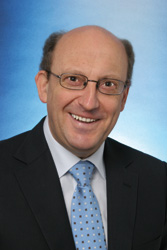 Mit der Entwicklung der Informationstheorie gelang C. E. Shannon bereits im Jahre 1948 der Beweis, das mittels geeigneter Codierverfahren auch über gestörte Übertragungskanäle prinzipiell eine fehlerfreie digitale Übertragung möglich ist, solange nicht versucht wird, mehr Daten zu übertragen als die Kapazität des Kanals zulässt. Dieses Kanalcodierungstheorem leitete eine breite Forschungstätigkeit auf dem Gebiet der Kanalcodierung ein. Dennoch wurden über viele Jahre trotz des Einsatzes anspruchsvollster mathematischer Methoden nur eher bescheidene Fortschritte erreicht und das Ziel, die informationstheoretische Kapazität von Übertragungskanälen in der Praxis nutzbar zu machen, erschien grundsätzlich unerreichbar. Erst durch die Zufallserfindung der sog. „Turbo-Codes
Mit der Entwicklung der Informationstheorie gelang C. E. Shannon bereits im Jahre 1948 der Beweis, das mittels geeigneter Codierverfahren auch über gestörte Übertragungskanäle prinzipiell eine fehlerfreie digitale Übertragung möglich ist, solange nicht versucht wird, mehr Daten zu übertragen als die Kapazität des Kanals zulässt. Dieses Kanalcodierungstheorem leitete eine breite Forschungstätigkeit auf dem Gebiet der Kanalcodierung ein. Dennoch wurden über viele Jahre trotz des Einsatzes anspruchsvollster mathematischer Methoden nur eher bescheidene Fortschritte erreicht und das Ziel, die informationstheoretische Kapazität von Übertragungskanälen in der Praxis nutzbar zu machen, erschien grundsätzlich unerreichbar. Erst durch die Zufallserfindung der sog. „Turbo-Codes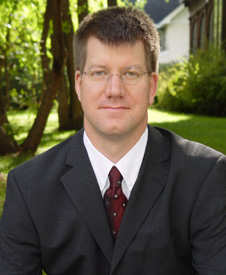 Abstract: The energy sector will undergo fundamental changes over the next ten years. Prices for fossil energy resources are continuously increasing, there is an urgent need to reduce CO2 emissions, and the United States and European Union are strongly motivated to become more independent from foreign energy imports. These factors will lead to installation of large numbers of distributed renewable energy generators, which are often intermittent in nature.
Abstract: The energy sector will undergo fundamental changes over the next ten years. Prices for fossil energy resources are continuously increasing, there is an urgent need to reduce CO2 emissions, and the United States and European Union are strongly motivated to become more independent from foreign energy imports. These factors will lead to installation of large numbers of distributed renewable energy generators, which are often intermittent in nature.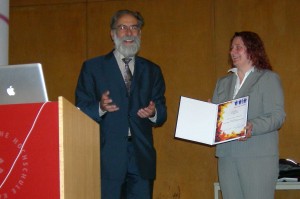 Informatik erLeben ist eine Initiative der Forschungsgruppe Informatik-Didaktik am Institut für Informatiksysteme. Prof. Roland Mittermeir und sein Team haben Lehreinheiten konzipiert, die Schülerinnen und Schülern Fachkonzepte der Informatik in spielerischer und altersgerechter Form näherbringen sollen. Die Einheiten sind für unterschiedliche Schulstufen von der Volksschule bis zur Oberstufe geeignet und behandeln verschiedene Bereiche der Informatik, wie Codierung, Verschlüsselung, Hardware, Netze, Betriebssysteme usw.
Informatik erLeben ist eine Initiative der Forschungsgruppe Informatik-Didaktik am Institut für Informatiksysteme. Prof. Roland Mittermeir und sein Team haben Lehreinheiten konzipiert, die Schülerinnen und Schülern Fachkonzepte der Informatik in spielerischer und altersgerechter Form näherbringen sollen. Die Einheiten sind für unterschiedliche Schulstufen von der Volksschule bis zur Oberstufe geeignet und behandeln verschiedene Bereiche der Informatik, wie Codierung, Verschlüsselung, Hardware, Netze, Betriebssysteme usw.